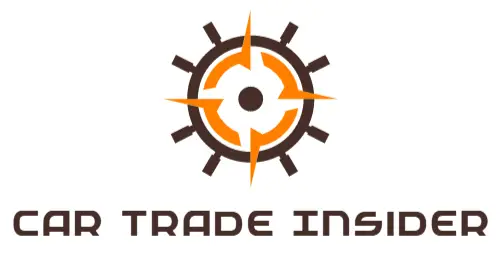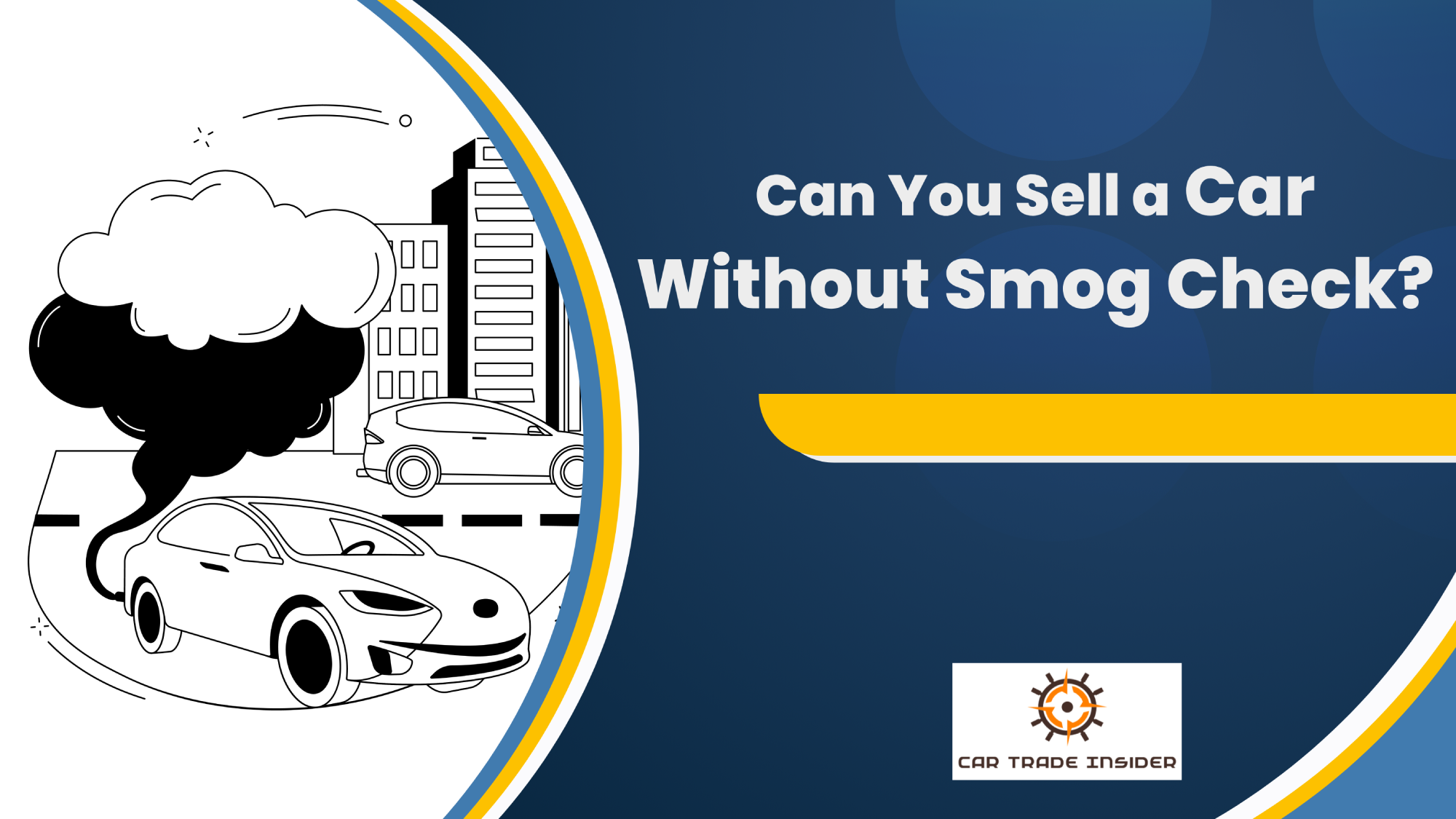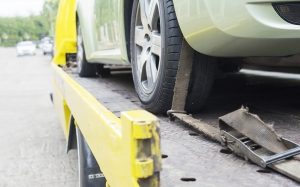Have you ever wondered, “Can you sell a car that doesn’t pass emissions?” If so, you’re not alone. It’s a pressing question for many car owners looking to sell their vehicles.
In short, yes, you can, but it’s fraught with challenges and legalities. Laws vary by state, and selling such a vehicle could expose you to liability risks.
In this blog, we’ll unravel the complexities involved with expert advice from automotive industry veteran, Mike Brewer. The focus of this article is to explore the legality and logistics of selling a car that doesn’t pass emissions, understand the implications of such a sale, and what alternative solutions exist for owners of such vehicles.
What is an Emissions Test?
An emissions test, also known as a smog test, measures the amount of pollutants your vehicle produces. It’s an integral part of environmental conservation efforts, ensuring vehicles on the road aren’t excessively contributing to air pollution. Presently, 34 states across the U.S. mandate emissions testing for vehicles.
Reasons for Failing an Emissions Test
Common reasons for failing emissions tests include malfunctioning oxygen sensors, faulty fuel injectors, and issues with the vehicle’s catalytic converter.
Can You Sell a Car That Doesn’t Pass an Emissions Test?
In brief, yes, you can sell a car that doesn’t pass emissions, but it’s fraught with challenges and legal complexities. Different states have various laws regarding emission standards, and selling a vehicle that fails to pass emissions tests could expose you to potential liabilities.
California Smog Check and Emission Test Rules
California, a state with an extensive history of dealing with smog, particularly around the Los Angeles area, established stricter emission regulations back in 1967 with the creation of the California Air Resources Board (CARB).
These rules, tougher than those from the federal Environmental Protection Agency, are also followed by 15 other states known as CARB states.
Selling Cars in the Golden State:
Selling a car in a CARB state, especially California entails adhering to strict requirements. If your car is under four years old, it’s exempt from smog checks, but a smog transfer fee will need to be paid by the new owner.
For cars older than four years that have failed a smog check, you can still sell them, but you must disclose this issue to any potential buyers. This disclosure should be documented, notarized, and kept separate from the bill of sale.
Warranty Considerations:
In CARB states, warranties might have provisions covering repairs for high-cost, emissions-related parts. However, don’t forget to check your owner’s manual for the specifics of your warranty coverage, as self-performed repairs might lead to a violation of your warranty.
After the Sale: Releasing Liability:
Once you’ve sold your car in California, it’s imperative to fill out a release of liability form with the California DMV. This step is crucial as it ensures you aren’t held accountable for any future parking/traffic violations or legal issues associated with the vehicle post-sale.
Always keep in mind that these guidelines are specifically tailored for CARB states, so if you’re located elsewhere, you’ll need to research the regulations applicable in your state.
Selling a Car That Doesn’t Pass Emissions: Strategies and Alternatives
Selling a car that fails an emissions test isn’t impossible, although it can be challenging. Several strategies and alternatives exist, such as selling the car privately, reaching a written agreement, selling the car to a dealership, using the planned non-operation method, or selling the car for parts.
1. Selling the Car Privately
You can decide to sell your vehicle privately to a buyer who is willing to handle the emission issues themselves. It is important to fully disclose the condition of the vehicle and the potential costs associated with repairing the emissions issues to the buyer.
This is a good option for older cars or cars with other problems where the cost of fixing the issue is more than the value of the car.
2. Gentleman’s Agreement in Writing
This strategy involves drafting an agreement between you and the buyer that clearly outlines the issues with the car, including the emissions problem. This agreement ensures that the buyer is fully aware of the vehicle’s condition and the costs they may incur. This way, you protect yourself from potential legal repercussions if the buyer later decides to sue. Check with your state’s DMV for reporting requirements.
3. Selling the Car to a Dealership
Car dealerships can buy cars that have not passed the emissions test. However, they are not allowed to sell these cars until they pass the test.
This means they will likely offer you a lower price for the vehicle, as they will need to bear the cost of the repairs necessary to make the car pass the emissions test.
4. Planned Non-Operation Method
In some states, you can change your vehicle’s status to “non-operational”. This means that the car is not legally allowed to be driven on public roads until it’s repaired and passes the emissions test. With this status, you can sell the car without needing to pass a smog check.
The buyer would be responsible for making the necessary repairs and changing the vehicle’s status back to operational.
5. Selling the Car for Parts
Another viable option is to dismantle the car and sell its parts individually. This can be a profitable method, especially if the car has valuable parts in good condition.
Getting Your Car to Pass Emissions Inspection
Fixing the issues causing your vehicle to fail emissions tests is the best solution before selling. This might involve replacing oxygen sensors, repairing the exhaust system, or even replacing the catalytic converter.
Summary
Understanding emissions testing, the laws surrounding it, and the consequences of selling a car that doesn’t pass emissions are essential. Whether you decide to repair the vehicle, sell it privately, or explore alternative selling options, transparency, and due diligence are key to navigating this process successfully.
Frequently Asked Questions
Can I Sell a Car That Doesn’t Pass Emissions?
This is an important question to answer, as the legal requirements vary by state. In some states, you are required to disclose the failure to pass emissions tests to potential buyers, while in others, you are not. It is important to check the specific requirements in your state before selling your car.
How Can I Prepare a Car That Doesn’t Pass Emissions for Sale?
By repairing the issues causing the vehicle to fail the emissions test and maintaining it properly.
What are the Future Trends in Vehicle Emissions Control?
Electric and hybrid vehicles are increasingly becoming the norm, and stricter emissions standards are being implemented by governments worldwide.
What are the Legal Requirements for Selling a Car That Doesn’t Pass Emissions?
The legal requirements vary by state. However, in many cases, you are required to disclose the failure to pass emissions tests to potential buyers. In certain states like California, you are required to provide a valid smog certification at the time of sale.
Can I Trade in a Car That Doesn’t Meet Emissions Standards?
Yes, you can trade in a car that doesn’t meet emission standards to a dealership. But remember, the dealership will factor in the repair costs needed for the car to pass emission tests, which might affect the trade-in value of your vehicle.
Are There Any Alternative Options for Selling a Car That Fails Emissions?
Absolutely! Alternative options include selling the vehicle as a “mechanic’s special,” marking it as “non-operational,” selling it for parts or even donating the car.
What are the Environmental Impacts of High Emissions from Cars?
The environmental impacts of high emissions from cars vary depending on the location. In some areas, high emissions can contribute to smog and air pollution, while in others, they can contribute to climate change. It is important to be aware of the environmental impacts of high emissions in your area so that you can make informed decisions about your vehicle.
How are Governments Addressing Emissions Regulations?
Governments are increasingly implementing stricter emissions standards and providing incentives for eco-friendly vehicles. These initiatives encourage citizens to keep low-emission vehicles and help combat environmental pollution.
What are the Future Trends in Vehicle Emissions Control?
With advancements in technology, electric and hybrid vehicles are becoming more popular. Also, emission control technologies are continuously improving, making vehicles more eco-friendly. Future trends will likely continue to revolve around these technologies, aiming toward a zero-emission vehicle environment.
How Can I Save Money on Emission-Related Repairs?
Look for local repair shops and compare prices. Some states even offer repair assistance programs for emissions-related issues, which can help offset the cost.
What is the Purpose of the California DMV’s Release of Liability Form?
The Release of Liability form protects the seller from any civil or criminal liability for the vehicle after the sale. It’s an important document to ensure you’re not held responsible for any future violations or issues related to the vehicle.
How Can I Retire My Vehicle and Get Paid?
Some states offer a Vehicle Retirement Program that pays you a certain amount to retire your old, high-emission vehicle. This helps remove high-emitting cars from the roads and reduce overall pollution.
Do All States Require a Smog Certification for Private Car Sales?
No, not all states require smog certification for private car sales. It’s important to check the specific requirements in your state before selling your car.
In conclusion, selling a car that doesn’t pass emissions can be a challenging endeavor. But, by understanding your state’s laws and exploring all available options, you can find the best course of action. Always remember to be transparent with potential buyers and act responsibly to contribute to the effort in reducing environmental pollution.
What States Require Emissions Testing
Not all states in the U.S. require emissions testing. However, currently, 34 states have mandatory emissions testing for vehicles.
The list of states that require emissions testing includes Alaska, Arizona, California, Colorado, Connecticut, Delaware, and the District of Columbia.
The list continues with Georgia, Idaho, Illinois, Indiana, Kentucky, Louisiana, Maine, Maryland, Massachusetts, and Missouri. Emissions testing is also required in Nevada, New Hampshire, New Jersey, New Mexico, New York, North Carolina, and Ohio.
Furthermore, Oregon, Pennsylvania, Rhode Island, Tennessee, Texas, Utah, Vermont, Virginia, Washington, and Wisconsin also necessitate this crucial environmental measure.
Can You Sell a Car That Failed Emissions in Illinois?
Yes, you can sell a car that failed emissions in Illinois, but you must disclose the failure to the buyer. Since cars must pass emissions tests every two years, not passing means the registration cannot be renewed. When selling, honesty is key—be upfront about the issue and price the car accordingly, as the buyer will have to cover repair costs.





